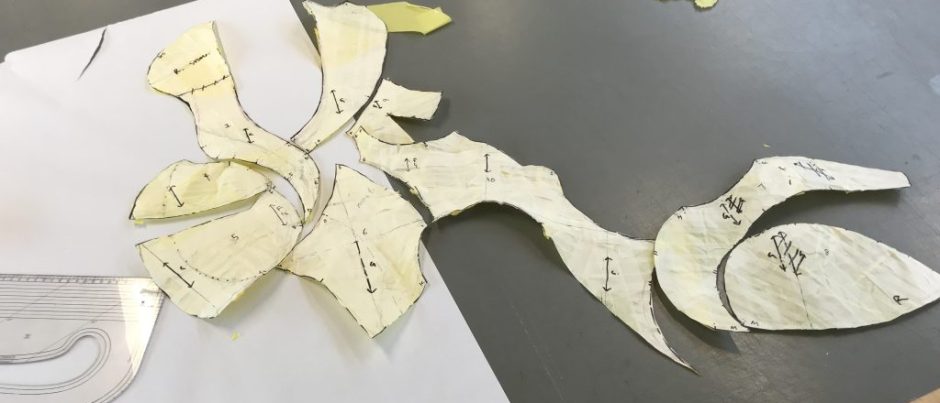We looked at the pg cert principles again, and the sheet of agreed values we had added our names to the week before. I liked this way of setting up the environment, and ensuring these principles were not only in the fore of our minds, but allowed us to feel as though we had some agency over them. This became very useful during some of the conversations we had within the session, which in dealing with very personal, challenging topics, could have in another, less well held space, escalated into arguments.
We kicked-off the session by looking at terms that we have been looking at over the past few weeks. After discussing these in pairs, we wrote them up on the wall. Links were made around two specific areas that required further clarification, or discussion. This method could be a useful tool in my own teaching practice, as a way of gauging where students are, so that I can better adapt the session and future sessions.
I recall my observed workshop session from last term, in which I think I miss-pitched the level of engagement of the students with earlier elements of the project. This task would have been an excellent way of assessing this.
The first common thread, highlighted by Amberleé and Miriam, was around the differences between ‘identity’ and ‘positionality’. As a group we untangled these terms.
Amberleé described positionality as ‘additional info’ or a reflective, speculative ‘lense’, rather than a ‘small print disclaimer’ which proved neutrality – which is impossible to be. This was linked by Miriam to the way in which ethics forms can be used as a ‘get out of jail free card’ for unethical practices.
I also found this discussion really interesting and helpful to consider in relation to the possible defensiveness that could emerge within a positionality statement (white fragility), particularly if the research is in relation to people or topics in which the researcher’s positionality is one of privilege.
We also spent time unpacking ‘critical pedagogy’. Dalia raised a really interesting point about the way in which pedagogic concepts are discussed, researched, and theorised in relation to the core of the idea – the questioning of oppressive systems and power dynamics within ‘knowledge’ and learning – all of which can only create meaningful change through actual action. Freire was mentioned again in response to this – that things on the classroom only matter because of things outside the classroom. C.p.a.r. was also mentioned (critical pedagogy action research).
We watched a short clip of a ted x panel talk from an event in Birmingham. The speakers were all involved in a theatre company called ‘The Horizontals’, and discussing the intersectional effect of ‘burn-out’ culture of people living with a disability. I found this really interesting in relation to the discussion around the impact of higher education as a service that is bought – in that our culture is driven by capitalist values. There is a romanticisation of the burn-out work ethic, and it seems to be linked to morality – concepts which are harmful, dangerous, exploitative and false. This reminds me of Carrie Jenkin’s ‘Sad-love’ in which she discusses and critiques the idea of the American dream sold – a ‘good life’ is possible through hard work. The idea that successful participation in the capitalist structure, that to be happy is to be a consumer.
I would be interested to learn more about the Horizontals, as a good example of alternative theatre practice to demonstrate to my students that it is possible to question the status quo of the industry, and take a human centred approach to creating theatre.
(notes write-up to be completed)
